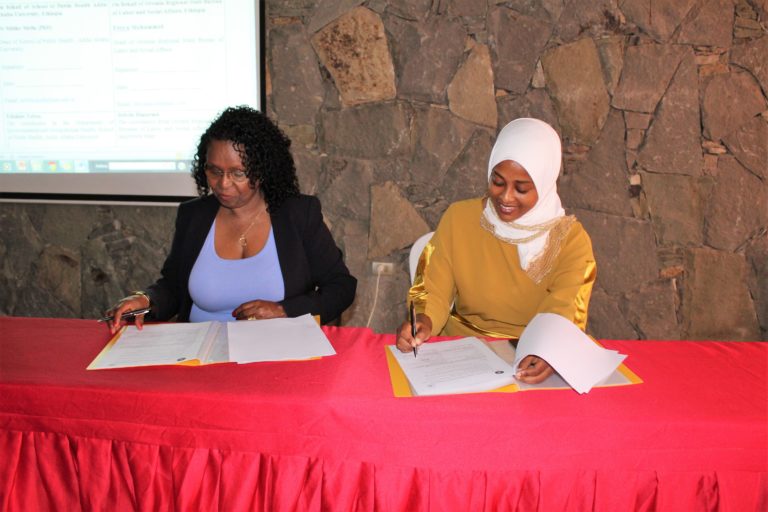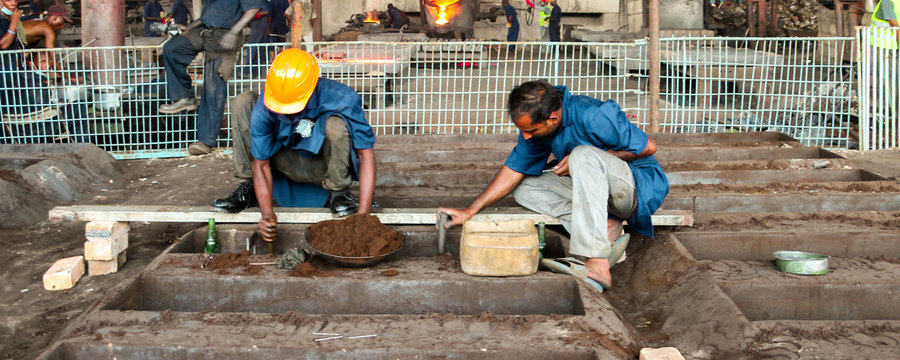Occupational Health: Legislation and Key People
Share this post
In the video you saw the main office of OSHA, Occupational Safety and Health Authority in Dar es Salaam, Tanzania. The personnel here work to improve the work places in Tanzania. As the former Director of OSHA said, OSHA is responsible for checking that companies adhere to the Working Environment Act, by doing work place inspections and evaluating situations. In addition, OSHA gives advices to companies on how the different work place risk factors can be reduced. This work is carried out both at the individual work places they visit, but also through seminars to groups who are taught about work and health. Not all units working with labour inspections do both these tasks, but it might be a good solution in developing countries where there are relatively few with the needed competence.
a) Legislation
Most countries have a specific law, A Working Environment Act, to ensure that a working environment does not harm the employees. The Working Environment Act itself and its interpretation can vary in different countries. The Norwegian Working Environment Act, for instance, formulates its function like this:
“The purpose of the Act is:
a) to secure a working environment that provides a basis for a healthy and meaningful working situation, that affords full safety from harmful physical and mental influences and that has a standard of welfare at all times consistent with the level of technological and social development of society,
b) to ensure sound conditions of employment and equality of treatment at work,
c) to facilitate adaptations of the individual employee’s working situation in relation to his or her capabilities and circumstances of life,
d) to provide a basis whereby the employer and the employees of undertakings may themselves safeguard and develop their working environment in cooperation with the employers’ and employees’ organisations and with the requisite guidance and supervision of the public authorities,
e) to foster inclusive working conditions.”
This formulation can be quite different in another country. Some countries may also have specific regulations related to certain types of work, such as mining or manufacturing industry; others have not. It is, however, very important to know about the regulations and guidelines when you work with occupational health. It carries more weight when you tell an employer that “this does not adhere to the existing law”, than to just say that in your opinion the work place should improve. It is important to understand that these laws are designed to protect workers and should be used accordingly.
There are also major differences between countries in how the adherence to the law is controlled. Many countries have some kind of labour inspection office that performs this task, like OSHA which was described earlier in this session. However, the labour inspection can, in reality; have few resources in some developing countries. This is unfortunate for the workers. It is very important to have a functioning labour inspection authority. Without inspections, it can be difficult to improve standards regarding work and health. Also, we see very different approaches in the different labour inspectorates. Some countries are strict and give hard penalties to companies that do not adhere to the laws, others do not. It is difficult to say how this should be performed to achieve the best results, but it is important that there will be some kind of consequence if the situation at the work place is not optimal.
b) Who works with occupational health issues?
Who works in occupational health, you may ask – apart from employees in the labour inspection. Maybe you have never seen or heard about anyone doing this kind of job. Occupational health should be integrated in many different settings. It is an area with far too few resources and focus in many countries. Here are five examples of groups of people who can and should work with occupational health:
1. All
All persons who are involved in work where there are employees or who employ others should have some knowledge about occupational health. All of us need to know the rules and the consequences of not keeping them.
2. Health personnel
It is important that health personnel in general have some knowledge about occupational health. For example, an x-ray photo of the lungs of a person with severe pneumoconiosis can look very much the same as severe tuberculosis. We want the physician to find the correct diagnosis. With training in and knowledge of occupational health, this is possible. You should not treat workers for tuberculosis when they instead should be helped by an improvement of the dust levels at the work place.
3. Occupational health personnel
Specific professionals receive more training in occupational health than others. Many countries have special occupational health services attached to companies, to ensure that the health of the workers is not harmed in any way. It is important to have competent personnel who can perform risk assessments of the work places and suggest preventive measures. This way, health hazards at work can be reduced. Occupational health personnel are multidisiplinary groups, including for instance occupational physicians, nurses, physiotherapists, occupational hygienists and safety engineers. You will learn more about such units later in this course. In addition, many countries have specific out-patient clinics for occupational diseases in their hospitals. This facilitates the process of patients receiving the correct diagnoses.
4. Labour inspectorates
Occupational Health is a main issue for employees in the Labour Inspectorates. The personnel in Labour Inspectorates work to improve the work environment at the work places.
5. Stakeholders
Stakeholders and policy makers, such as politicians need to have some knowledge of occupational health. They are important players in the process of improving working life. They work to initiate and develop legislation, policies and other official actions that affect conditions in the work place. Also, trade unions can be mentioned here. They have been important for developing good working conditions and legislation in many countries, both historically and today.
An example of an important co-operation is visualized below. Here you see the signing of a Memorandum of Understanding between Addis Ababa University and Oromia Regional State Bureau of Labour and Social Affairs (BOLSA) in Ethiopia. The MoU was signed by Dr. Mitike Molla, Dean at the School of Public Health, AAU and Ms. Fetiya Mohammed, Head of Oromia BOLSA, the 6th November 2018. We hope the MOU will lead to more and better education in Occupational Health in Ethiopia.

Signing ceremony. © G. Koldal
Share this post
Occupational Health in Developing Countries

Occupational Health in Developing Countries


Reach your personal and professional goals
Unlock access to hundreds of expert online courses and degrees from top universities and educators to gain accredited qualifications and professional CV-building certificates.
Join over 18 million learners to launch, switch or build upon your career, all at your own pace, across a wide range of topic areas.
Register to receive updates
-
Create an account to receive our newsletter, course recommendations and promotions.
Register for free




